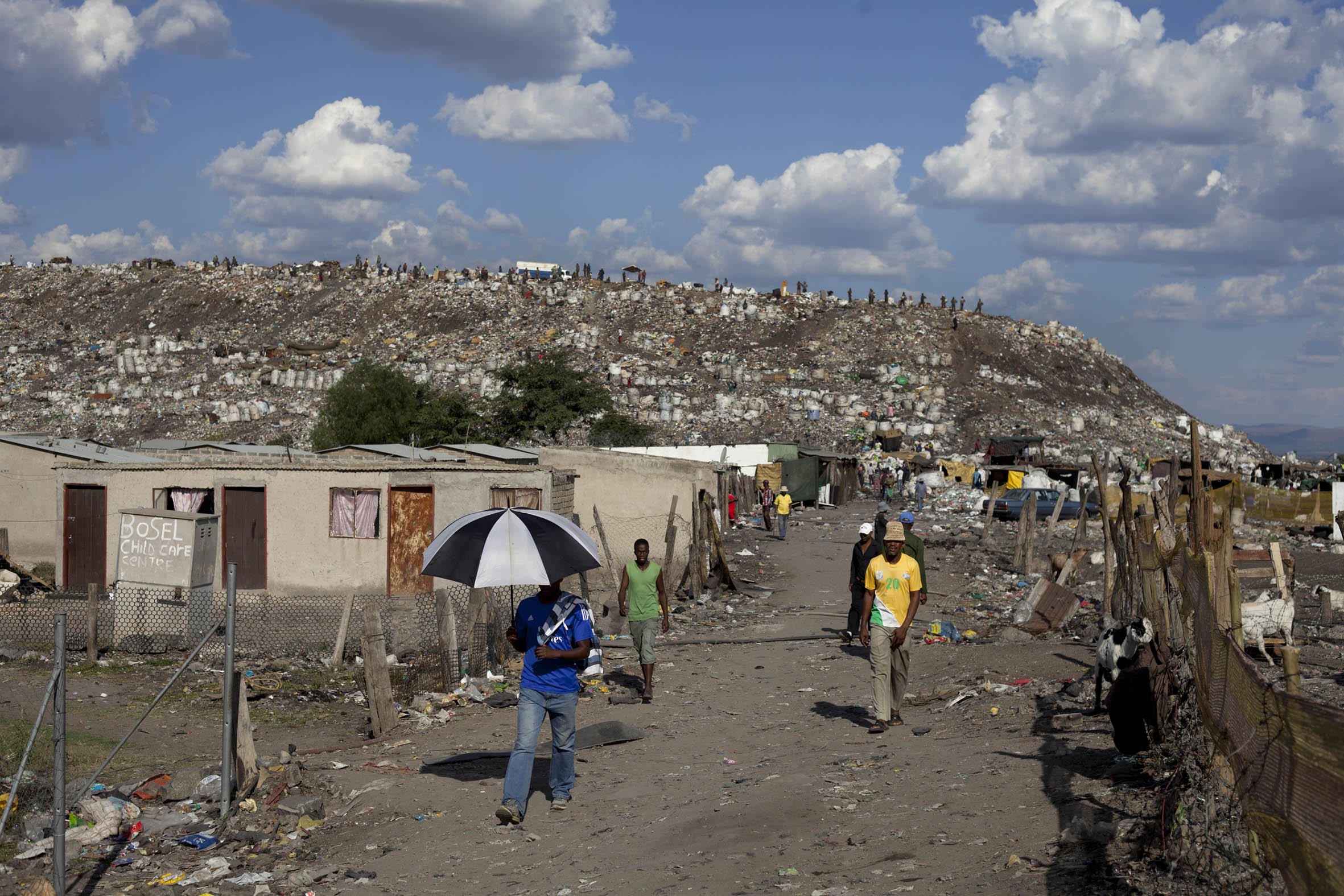A new study by the international humanitarian organisation Doctors Without Borders (MSF) has found that a quarter of women in the mining town of Rustenburg have been raped in their lifetimes.
MSF estimates that more than 11 000 girls and women may be raped each year.
Conducted in 2015, the research surveyed almost 900 women between the ages of 18 and 49 living in the local municipality. Almost half of all women reported having experienced sexual or intimate partner violence in their lives, according to the research released on Tuesday at the South African Violence Conference in Boksburg.
The findings show that about 50 000 women in the area could be rape survivors and for many of them, rape and violence have become common experiences as they seek a better life often far from home.

The Sondela informal settlement lies between a rising trash heap and a mine dump in a landscape littered with reminders of the area’s dependence on platinum mining (Oupa Nkosi, M&G)
Women pay a heavy price for dependence
The rooftops of the Sondela informal settlement stretch out like a patchwork quilt. Squeezed between a rising trash heap and a towering grey mine dump on the other, Sondela borders on an active mine shaft.
MSF community health worker Rosina Palai spends her days traversing the rough lanes between corrugated iron walls and the occasional portable toilet of Rustenburg’s informal settlements to seek out survivors of sexual and gender-based violence.
“It’s not so simple to talk about sexual violence. People come from different provinces and have different cultures and languages,” she says.
“They [women] came to Rustenburg with the hope of maybe getting a better life. The thing they thought they were going to get is not here.”
About half of Rustenburg’s overwhelmingly male population rely on the platinum mines for employment, according to the 2011 census municipal report. The town itself lies about 30km away from Marikana. The mines attract migrants of both sexes from around the country and the greater region. There are more economic opportunities on the mines for men and unemployment among migrant women is high, a University of Cape Town sociologist, Asanda Benya, revealed in a 2015 article published in the Review of African Political Economy journal.
About 70% of the women surveyed by MSF were migrants.
Their dependence on men makes sexual violence a difficult subject for the women who Palai tries to counsel in their homes about services available to survivors of rape.
“When you go and try to talk to them, they’ll say: ‘Mama, let me stop you right there because, if I tell you my husband is abusing me, it’s okay because he’s the one providing for me. If I go to your centre and get counselling and my husband or boyfriend finds out, who will support me? You?’”
The MSF’s survey found that, although most survivors interviewed knew rape could lead to sexually transmitted infections, including HIV, and pregnancy, only about 5% women sought medical care.
Less than half of survivors knew that by taking post-exposure prophylaxis (PEP), or antiretrovirals after HIV exposure to prevent infection, within 72 hours could reduce their chances of contracting HIV. Government clinics provide PEP for free to rape survivors.
“For many women, sexual violence has become part of their daily lives,” the study states.
Girls don’t escape the violence
MSF provides care and psychosocial support to sexual violence survivors in Rustenburg through its Kgomotso Care Centre clinic, which specialises in treating gender-based violence. In its first year, about half of the patients were younger than 18.
Palai says many of the women’s stories she hears stay with her. Recently, she counselled a 12-year-old girl who had been raped. By the time the girl and her grandmother sought help to terminate the pregnancy, it was too late.
“The child can’t even look at the baby,” Palai says. “She’s young, she’s still playing like other children. Now she says she’s always alone, trying to have friends. Her schoolmates have started talking about her. She doesn’t want to go to school.”
About 8% of the women surveyed said they were raped before the age of 15.
Palai says she hopes counselling will help the 12-year-old and her family to recover. Living near the clinic, the girl stands a better chance than most survivors of getting care.
According to the MSF, only 11 of the district’s 137 health facilities offer PEP or support the forensic examination for rape survivors needed to bring rapists to justice.
To expand access to services, MSF and the North West department of health are partnering to roll out a basic package of care for survivors, including PEP, emergency contraception and counselling, throughout the province.